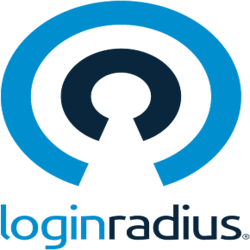Top Business Management Softwares
Business Management software is essential for organizations seeking to streamline operations, optimize productivity, and enhance decision-making. This type of software encompasses tools that assist in managing various business functions including finance, human resources, sales, and customer relations. By integrating processes, businesses can ensure that data is easily accessible and workflows are... Read More
178 companies found
Product Description
Intact Software is a modern solution designed to streamline and simplify the way businesses handle their operations. Whether you're running a small startup or managing a growing enterprise, Intact offers a range of tools that make complex tasks easier to manage. Our platform brings everything you need for efficient business management into one convenient place. With Intact, you can automate dail... Read More
Users
- • No Data
Industries
- • No Data
Market Segment
- • No Data
Product Description
Carbonite is a cloud-based data protection service designed to keep your critical information safe and easily accessible. Whether you're a small business owner or a large enterprise, Carbonite offers a straightforward solution for backing up your data and ensuring that you can recover it quickly in case of unexpected incidents like hardware failures, cyber-attacks, or natural disasters. One of th... Read More
Users
- • No Data
Industries
- • No Data
Market Segment
- • No Data
Crossroads
Product Description
Navigating the world of supply chain management can be a complex task, but Crossroads is here to make it easier. Crossroads is a user-friendly software designed to streamline and enhance your supply chain processes. Whether you're managing inventory, tracking shipments, or coordinating with suppliers, Crossroads provides straightforward tools that help you stay on top of everything. One of the st... Read More
Users
- • No Data
Industries
- • No Data
Market Segment
- • No Data
Product Description
Imagine a tool that simplifies the day-to-day tasks of managing your business's financials, from tracking expenses to handling payroll smoothly. ACPAS is that tool – a straightforward, user-friendly software designed to make accounting for small and medium-sized businesses easier. With ACPAS, say goodbye to the headaches that often come with traditional accounting systems. It automates much of th... Read More
Users
- • No Data
Industries
- • No Data
Market Segment
- • No Data
Product Description
MOE is the software designed to simplify and streamline event organization. For those tired of juggling spreadsheets, email chains, and manual processes, MOE brings everything you need into one easy-to-use platform. With MOE, you can manage attendees, schedule sessions, handle registrations, and ensure seamless communication—all from your computer or mobile device. The heart of MOE is its user-fr... Read More
Users
- • No Data
Industries
- • No Data
Market Segment
- • No Data
Product Description
WorkSpan is a collaborative software platform designed for business-to-business (B2B) enterprises that need to manage and execute their partnerships effectively. At its core, WorkSpan makes it easier for companies to work together and achieve shared business goals. This often includes managing joint marketing campaigns, co-selling opportunities, and partner solutions. Traditionally, coordinating... Read More
Users
- • No Data
Industries
- • No Data
Market Segment
- • No Data
AcuMax Index
Product Description
AcuMax Index is designed to help businesses understand the natural hardwiring of their employees and candidates, providing deep insights into their motivations, productivity drivers, and overall fit within an organization. By focusing on human wiring, this tool enables companies to build more effective and harmonious teams. At its core, AcuMax Index offers user-friendly assessments that shed ligh... Read More
Users
- • No Data
Industries
- • No Data
Market Segment
- • No Data
Product Description
QFloors is a comprehensive software solution designed specifically for flooring businesses. With a focus on making operations smoother and more efficient, QFloors offers an array of tools tailored to the unique needs of retailers, distributors, and contractors in the flooring industry. This cloud-based software covers everything from managing inventory to tracking sales and handling accounting, al... Read More
Users
- • No Data
Industries
- • No Data
Market Segment
- • No Data
SAP Concur
Product Description
Imagine a service that turns the tedious task of managing expenses into a quick and simple process. That’s what SAP Concur offers. It’s a straightforward, cloud-based solution designed to help businesses of all sizes handle their travel, expense, and invoice management. SAP Concur takes the headache out of these tasks by automating them. Instead of manually entering expenses or spending hours rec... Read More
Users
- • No Data
Industries
- • No Data
Market Segment
- • No Data
LoginRadius
Product Description
LoginRadius is a company that offers a platform designed to help businesses manage and optimize user authentication processes. At its core, LoginRadius allows companies to focus on their primary operations while it handles the complex challenges of user login, registration, and identity management. One of the key features of LoginRadius is its ability to streamline the process of user sign-ups an... Read More
Users
- • No Data
Industries
- • No Data
Market Segment
- • No Data
What is Business Management software used for?
Business Management software is crucial in helping organizations streamline their operations and improve efficiency. It encompasses a wide range of applications that aim to support and automate various business processes.
Streamlining Operations
One of the primary uses of Business Management software is streamlining operations. It integrates diverse processes across departments, ensuring that information flows seamlessly within the organization. By automating routine tasks and eliminating redundant processes, businesses can allocate resources more efficiently and reduce operational costs.
Enhancing Communication
Effective communication is vital for the success of any business. Business Management software facilitates improved communication within the organization and with external stakeholders. It provides platforms where teams can collaborate, share information, and coordinate projects regardless of geographical location. This enhances teamwork and ensures everyone is aligned with the company's goals.
Managing Financial Processes
Financial management is a significant area where Business Management software proves indispensable. It helps organizations keep track of their financial transactions, budgets, and expenditures. The software offers tools for invoice management, payroll processing, and financial reporting. With accurate data, businesses can make well-informed financial decisions and maintain a healthy economic standing.
Improving Customer Relationship Management
Customer Relationship Management (CRM) is another key area where Business Management software is utilized. CRM tools within the software aid in managing customer interactions, tracking sales, and improving customer satisfaction. The software stores valuable customer data that can be used to tailor services and communications to meet customer needs better.
Supporting Human Resources Management
Human Resources (HR) departments benefit significantly from Business Management software. It automates various HR processes such as recruitment, onboarding, performance evaluation, and compliance management. This allows HR professionals to focus on strategic initiatives while ensuring that employee-related processes run smoothly.
Facilitating Data-Driven Decisions
In today's data-driven world, making informed decisions is critical. Business Management software provides analytics and reporting tools that extract valuable insights from vast amounts of data. These insights help organizations identify trends, gauge performance, and predict future opportunities, enabling data-driven decision-making.
Inventory and Supply Chain Management
Managing inventory and supply chains efficiently is essential for businesses, especially those in retail and manufacturing. Business Management software offers solutions that automate inventory tracking, order management, and logistics coordination. This ensures that products are available when needed, supply chain disruptions are minimized, and customer demands are met consistently.
Compliance and Risk Management
Adhering to industry regulations and managing risks are imperative for business continuity. Business Management software aids in compliance by standardizing processes, documenting procedures, and maintaining records for audits. Risk management tools within the software help identify potential risks and implement mitigation strategies proactively.
Business Management software is integral in optimizing business functions across various departments. By enhancing efficiency, improving communication, and providing tools for effective decision-making, this software supports organizations in achieving their objectives and maintaining a competitive edge.
How does Business Management software improve efficiency?
Business Management software streamlines various operations within a business, effectively enhancing efficiency. Here are some ways it achieves this:
Centralized Information Access
Business Management software provides a single platform where all business-related data is stored and accessed effortlessly. It creates a unified repository for information, allowing team members to access data from anywhere, thereby eliminating data silos. This results in reduced time spent searching for information, leading to faster decision-making processes.
Automation of Routine Tasks
Routine tasks such as invoicing, scheduling, and inventory management are automated through Business Management software. Automation reduces the time employees spend on repetitive tasks, freeing them to focus on more strategic activities. This minimizes human error and ensures tasks are completed more quickly and consistently.
Improved Communication and Collaboration
Enhanced communication tools integrated within Business Management software facilitate seamless interaction among employees, departments, and even with external partners. Efficient communication reduces bottlenecks that can slow down project timelines. Collaborative features like shared calendars and project management tools ensure that teams work harmoniously, keeping everyone aligned with organizational goals.
Real-time Data and Analytics
Access to real-time data empowers businesses to make informed decisions promptly. Business Management software provides dashboards and reports that offer insights into various business processes. By analyzing these insights, businesses can identify bottlenecks, optimize processes, and allocate resources efficiently, leading to improved overall performance.
Streamlined Workflow Processes
Workflow automation tools within Business Management software help in designing and standardizing internal processes. By defining clear steps and assigning responsibilities, workflow tools ensure tasks are completed systematically. This reduces delays and ensures that processes are consistent, transparent, and efficient.
Resource Allocation and Optimization
With comprehensive data on resource usage, Business Management software aids in better resource allocation. By understanding how resources (such as time, manpower, and materials) are spent, businesses can optimize their allocation, ensuring that neither underuse nor overuse occurs. This helps in maximizing productivity without incurring additional costs.
Enhanced Customer Relationship Management
Business Management software often includes customer relationship management (CRM) capabilities. By maintaining detailed customer data and tracking interactions, businesses can enhance their service delivery. Improved customer interactions and satisfaction lead to increased customer retention and the potential for new business opportunities.
Scalable and Adaptable Systems
Scalability becomes manageable with Business Management software. As businesses grow, the software adapts to new requirements without the need for significant restructuring. This adaptability ensures that businesses can maintain efficiency without disruptions due to growth-related stress.
Compliance and Risk Management
Ensuring compliance with industry regulations is essential yet time-consuming. Business Management software helps track compliance-related information and integrates risk management processes. This minimizes the time required for compliance checks and reduces the likelihood of regulatory issues that could slow down business operations.
Business Management software is crucial for improving operational efficiency across various business functions, contributing to streamlined activities and enhanced productivity. The systematic implementation of its various components enables a company to operate smoothly, focusing energy on strategic growth rather than mundane tasks.
What features are commonly found in Business Management software?
Business Management software is designed to improve the efficiency of various business operations. Companies employ it to streamline tasks, optimize resources, and facilitate growth. Here are some common features found in Business Management software:
1. Resource Management
Most Business Management software includes tools for resource allocation and optimization. It aids in managing human and financial resources, ensuring they are used effectively. This feature helps in scheduling, assigning tasks, and tracking resource utilization.
2. Project Management
This feature provides functionalities to plan, execute, and monitor projects. Project management tools often include Gantt charts, project timelines, and task assignment capabilities. They allow teams to set milestones, manage dependencies, and ensure projects are on track.
3. Customer Relationship Management (CRM)
CRM is an integral part of many Business Management solutions. It helps businesses manage interactions with current and potential customers. With CRM, companies can track sales leads, manage contacts, and automate marketing efforts, ensuring a personalized customer experience.
4. Financial Management
Financial management features are crucial for overseeing a company’s monetary health. These features include tools for budgeting, forecasting, accounting, and financial reporting. They offer insights into cash flow and help in maintaining financial accuracy.
5. Supply Chain Management
This feature facilitates the management of the flow of goods and services. It oversees processes from procurement to production and delivery. Supply chain management tools help in inventory control, supplier management, and logistics optimization.
6. Human Resources Management (HRM)
HRM modules manage employee-related functions. This includes payroll, attendance tracking, recruitment, and performance evaluation. They streamline processes related to hiring, training, and employee development.
7. Analytics and Reporting
Analytics tools offer data-driven insights to aid decision-making. They provide real-time reporting on various business aspects, from sales performance to employee productivity. Visualization tools such as dashboards facilitate the interpretation of complex data.
8. Document Management
Document management systems are included to store, retrieve, and manage digital documents. They support collaboration and ensure documents are secure and easy to access. These tools help in maintaining version control and compliance with regulatory standards.
9. Collaboration Tools
Collaboration features enhance team communication and cooperation. They may include messaging apps, video conferencing, and shared workspaces. These tools facilitate remote work and ensure team alignment on goals and priorities.
10. Process Automation
Automation tools reduce manual efforts by automating repetitive tasks. This feature allows for process automation in areas such as invoicing, marketing, and customer service. Automation improves efficiency and reduces the likelihood of human error.
Business Management software is an essential toolset for modern enterprises, offering an array of features to optimize different aspects of business operations. Each feature adds value by enhancing productivity and improving overall business performance.
How can Business Management software help with project management?
Streamlined Project Planning
Business Management software aids in project planning by allowing managers to allocate resources, set timelines, and define project scopes effectively. It eliminates manual errors and ensures that every aspect of a project is systematically organized. Through advanced algorithms, the software suggests best practices and optimal pathways to initiate and execute projects efficiently.
Enhanced Collaboration
Collaborative features in Business Management software enhance teamwork significantly. Team members can communicate in real-time, share documents, and track project updates. This constant connection ensures that everyone is on the same page, maintaining clarity and focus throughout the project's lifecycle. It promotes an environment where ideas and feedback are exchanged seamlessly, enhancing project outcomes.
Resource Allocation and Management
Efficient resource management is critical for project success. Business Management software provides tools to allocate resources judiciously, monitor their usage, and adjust allocations as needed. The software helps identify fluctuations in resource demands, allowing managers to distribute workloads evenly and prevent burnout or underutilization. Optimizing resource use boosts productivity and ensures projects complete within budget and on time.
Time Management
With built-in timeline tracking, Business Management software allows for effective time management. Project managers can set milestones, deadlines, and track progress against these benchmarks. Time tracking ensures accountability among team members, discouraging procrastination and promoting efficiency. By providing alerts for approaching deadlines, the software prevents last-minute rushes and ensures each phase of the project progresses smoothly.
Risk Management
Potential risks in project management are inevitable. Business Management software plays a crucial role in identifying, analyzing, and mitigating risks. The system can forecast possible issues based on current trends, historical data, and predictive analytics. By proactively addressing risks, teams can develop contingency plans, avoiding project disruptions and ensuring consistent progress.
Budget Oversight
Budgeting is an integral part of project management. Business Management software provides detailed financial tracking and analytics, allowing managers to oversee project expenses meticulously. The real-time data access helps in making informed budgetary decisions, ensuring financial resources are used wisely. By tracking expenditures against set budgets, the software ensures projects remain cost-efficient.
Centralized Data and Documentation
Centralizing data is essential for seamless project execution. Business Management software offers a unified platform where all project-related documents and data can be stored securely. This centralization eradicates data silos, ensuring every team member can access the necessary information without delay. It enhances transparency and ensures that decision-making is powered by accurate, up-to-date information.
Performance Monitoring and Reporting
Monitoring performance is essential to gauge project success. Business Management software includes tools for tracking various performance metrics, providing insights into productivity, task completion, and overall project health. The software automates the reporting process, generating comprehensive reports that help stakeholders understand project progress. These reports facilitate data-driven decision-making and help in fine-tuning ongoing and future project strategies.
Flexibility and Scalability
Business Management software offers flexibility and scalability, adapting to the changing needs of any project. As projects grow or shift in scope, the software allows for adjustments in resources, timelines, and plans without compromising on efficiency. This adaptability is crucial for managing dynamic project environments, ensuring continuous improvement and successful project delivery.
What are the benefits of using Business Management software for small businesses?
Enhanced Efficiency
Business Management software streamlines various operational aspects, enhancing efficiency. It allows small businesses to automate routine processes such as invoicing, inventory management, and task scheduling. This software minimizes errors and frees up time so that employees can focus on more strategic tasks. By centralizing processes, it ensures smoother workflows.
Improved Data Management
With Business Management software, small businesses can manage data effectively without the need for extensive manual intervention. The software offers centralized data storage, facilitating easy access and sharing of vital business information across departments. This integration fosters better decision-making and decreases data redundancy.
Cost Reduction
Small businesses often operate with limited resources. Investing in Business Management software can lead to significant cost savings by reducing labor-intensive processes. Automation decreases the need for additional staff and cuts down on human errors, further minimizing wasteful expenditure.
Enhanced Collaboration
Business Management software fosters better collaboration among team members. It provides a shared platform where employees can communicate, coordinate tasks, and share information seamlessly. This collaboration leads to improved teamwork, enhancing productivity and innovation within the company.
Real-time Monitoring
Most Business Management software options come equipped with real-time monitoring capabilities. This feature allows small businesses to track performance metrics and monitor ongoing projects. Owners and managers can gain immediate insights into business operations, which helps in timely decision-making and strategic planning.
Scalability
For small businesses with growth aspirations, scalability is vital. Business Management software can be adapted to evolving business needs without major investments. It supports the addition of new functionalities and modules as the company expands, ensuring continuity and sustained organizational growth.
Enhanced Customer Relationships
Effective customer relationship management is crucial for small businesses. Business Management software helps maintain detailed customer databases, track interactions, and manage communications. Enhanced customer insights enable businesses to tailor their offerings and foster stronger client relationships.
Compliance and Reporting
Regulatory compliance can be a complex task for small businesses. Business Management software helps in maintaining compliance by automating reporting and documentation processes. It ensures that the business adheres to industry standards and legal mandates, reducing the risk of costly penalties.
Better Resource Allocation
Using Business Management software allows small businesses to allocate resources more efficiently. The software provides insights into resource utilization, helping organizations optimize their workforce and material allocation. This ability to forecast and plan reduces resource wastage and maximizes output.
Time Management
Time is a critical resource for any small business. Business Management software aids in effective time management. By automating tasks and reducing manual workloads, it enables teams to focus on high-priority objectives. Proper time allocation boosts productivity and supports goal achievement.
In summary, Business Management software can significantly impact the operational effectiveness of small businesses. It enhances efficiency, data management, and resource allocation while supporting scalability, compliance, and better customer relations.
How does Business Management software support team collaboration?
Centralized Communication
Business Management software facilitates communication among teams by providing a unified platform for messages, updates, and discussions. This centralization eliminates scattered emails and messages, allowing team members to communicate seamlessly. Notifications keep everyone informed in real-time, ensuring no critical information is missed.
Task and Project Management
A key feature of Business Management software is its ability to manage tasks and projects effectively. Team members can assign tasks, set deadlines, and track progress. With visibility into everyone's responsibilities, accountability is increased, and collaboration is enhanced as team members can coordinate more effectively.
Shared Calendars and Scheduling
Scheduling can be challenging in teams with diverse workloads. Business Management software often includes shared calendars that allow team members to view each other's schedules. This feature simplifies planning meetings and events, minimizing scheduling conflicts and ensuring that everyone is aligned.
Document Collaboration and Storage
Business Management software offers centralized document storage that gives team members access to the latest versions of documents at any time. Collaborative features such as live editing and comments enable teams to work together on documents without the need for multiple versions. This streamlines document workflows and fosters collaboration.
Role-Based Access
Role-based access control is a vital component of Business Management software, ensuring that team members have the right level of access to data and tools necessary for their roles. By safeguarding sensitive information and providing appropriate access, the software supports secure and effective collaboration without bottlenecks.
Workflow Automation
Automating repetitive processes through Business Management software allows teams to focus on more strategic tasks. Automated workflows reduce the need for constant manual intervention, leading to streamlined operations and improved collaboration. Teams can allocate more time to creative problem solving and strategic planning.
Integration with Tools and Services
Business Management software often integrates with various other tools used by teams, such as CRM systems, accounting software, or social media platforms. This integration promotes a unified working environment by allowing data to flow seamlessly between systems. Enhanced collaboration is achieved through the ease of accessing comprehensive data.
Real-Time Analytics
Analytics tools incorporated in Business Management software provide real-time insights into team performance and project progress. These insights help identify areas where collaboration can be improved, allowing teams to make informed decisions and adapt strategies effectively.
Flexibility and Remote Collaboration
With the rise of remote work, Business Management software supports teams working from different locations and time zones. Cloud-based platforms ensure that team members can access tools and information from anywhere, promoting a flexible working environment where team collaboration is unaffected by geographical boundaries.
Enhanced Decision-Making
Business Management software improves decision-making by providing comprehensive data visibility and analytical tools. This transparency helps teams understand the full context of their projects, facilitating more informed discussions and decisions that enhance collaboration and drive success.
What should you consider when choosing Business Management software for your business?
Understand Your Business Needs
Understanding your business needs is crucial when selecting Business Management software. Evaluate what processes you need to improve and how software can facilitate this. Consider the scale of your operations, whether you're a small startup or a large enterprise. Business Management software should align with your current needs whilst being adaptable as your business grows.
Budget Constraints
Establish a clear budget for your Business Management software. Pricing structures can vary widely, from one-time purchases to subscription models. Ensure there are no hidden costs and that ongoing expenses like updates or customer support are factored in. A well-defined budget prevents overspending while ensuring you get the most suitable software.
Integration Capabilities
Check if the Business Management software can integrate with your existing systems. Integrations streamline workflows and ensure smooth data transfer between applications. Whether you need to integrate with accounting, customer relationship management, or supply chain tools, recognized integration capabilities reduce the need for manual data entry and mitigate errors.
User-Friendliness
A user-friendly interface in Business Management software enhances productivity. Complicated systems require more training, slowing down adoption. Look for software with intuitive navigation and efficient functionality, enabling your team to execute tasks efficiently without a steep learning curve.
Scalability
Choose Business Management software that can grow with your business. Scalability ensures that as your operations expand, the software can handle increased loads and complex processes without performance issues. Evaluate if the software can accommodate additional users, data, and functions without significant overhauls.
Security Measures
Security is a priority in Business Management software. Since sensitive data such as financial information might be stored, robust security features are essential. Look for encryption, regular security updates, and compliance with data protection regulations to safeguard your information against breaches.
Customer Support and Training
Efficient customer support is necessary for troubleshooting and maximising the use of Business Management software. Consider the availability and quality of support options, including online resources, phone support, or live chat. Furthermore, evaluate training materials or sessions offered to ensure your team can efficiently use the software.
Customization Options
Assess whether the Business Management software allows for customization to suit your specific needs. Customization can include adjusting workflows, interface components, and reporting features. This flexibility ensures that the software aligns closely with your business operations, thereby enhancing efficiency.
Performance and Reliability
Ensure that the Business Management software you select offers high performance and reliability. Downtime can result in operational delays and loss of business continuity. Investigate software reviews and vendor track record to gauge reliability and decide if it will maintain stability under heavy use.
Vendor Reputation
Consider the reputation and background of the software vendor. A well-established vendor with a strong track record is typically more reliable. Research reviews, customer testimonials, and industry reports to ensure you partner with a trustworthy provider who can deliver on promises.
Trial Versions and Demos
Utilise trial versions or demos of Business Management software to assess whether it meets your needs. These trials provide hands-on experience with the software, allowing you to evaluate its compatibility with your business processes before committing financially.
By weighing these factors, you can make an informed decision that supports operational efficiency and business growth.









